Where does a lion sleep?
Anywhere she wants.

Is Lion Legal the right law firm for you? Find out today. Schedule a complimentary phone interview now.
Bankruptcy
Take Back Control of Your Financial Future
Are the phone calls never ending? Do you worry that you are going to lose your car, your home, or your paycheck to creditors? Or worse, that you may never be able to pay off all that you owe? Lion Legal helps the people of Arkansas take back control of their financial future. We can show you how bankruptcy can help restore the peace of mind that creditors have stolen from you. Put our years of legal experience to work for you. We will take the time to give you the best legal advice possible, and you will leave our office with restored hope for the future, and the weight off your shoulders. Let us help you get a fresh start.
Chapter 7 Bankruptcy
In simple terms, a person who files Chapter 7 is saying that they can no longer afford their bills, and they are asking for relief subject to other provisions of the law.
Chapter 13 Bankruptcy
Chapter 13 is the type of bankruptcy that is available to most individuals. A person who files Chapter 13 is saying that they have some ability to repay creditors, unlike Chapter 7, but cannot repay all of their debts as they are currently situated.
Click here to read more about the differences between Chapter 7 and Chapter 13 Bankruptcy in Arkansas.
Garnishment
Garnishments are most commonly generated by a civil court judgment, although certain tax problems can also result in a payroll garnishment. If you have failed to pay on a medical bill, credit card, or other contractual arrangement and the creditor has sued you, then if you are unable to successfully defend the lawsuit, the creditor will receive a judgment issued by a state court judge. The creditor can “execute” on the judgment by having a Sheriff come to your home to collect and sell property, or more commonly, they will have a writ of garnishment issued by the judge.
A writ of garnishment is a legal document that allows the creditor, under Arkansas law, to forcibly take from your employer up to twenty-five percent (25%) of your wages.
This means if, for example, you earn $1,000.00 per paycheck then the creditor will take the first $250.00 of the paycheck leaving you with $750.00, with taxes then being taken out as if you had been paid $1,000.00. This means that the garnishment will effectively be more than 25% of your pay. Further, this garnishment will continue until the entire debt plus interest has been paid.
Bank Account Garnishment
In addition to the payroll or wage garnishment, the creditor can also garnish your checking account, savings account or other similar deposit account. Unlike the 25% limitation on payroll garnishment, there is no limit to the amount of funds they can take from your checking account during a bank account garnishment, except that they cannot take more than they are owed.
Most people are aware or have heard that Social Security benefits cannot be garnished. However, this is only partially true. Creditors cannot seize a Social Security benefit check, but once that check is deposited in a bank account and co-mingled with other funds, that creditors can seize all of those funds from the bank account.
What stops garnishments?
Chapter 7 & Chapter 13 bankruptcy stop garnishments cold. Both forms of bankruptcy remove the garnishment from your payroll, and prevent the garnishment from ever being reissued upon receiving your discharge from whichever Chapter you file under. A discharge is what a person receives from the successful completion of a bankruptcy. The discharge is a Federal Court Order that says that the creditor may never again attempt to collect from you.
Repossession
Repossession is a legal process whereby, most commonly, a creditor who has lent you money to purchase a vehicle seeks to sell your vehicle to Arkansas Repossession to repay the loan after you have become delinquent in loan repayment. Most commonly, it is a car or truck repossession that people are facing; although, a boat, ATV, RV or any other piece of collateral in which the seller retained a lien can be repossessed.
When you borrow money to purchase a vehicle, the creditor has you sign a promissory note and then affixes a lien against your automobile. The lien secures the promissory note in the event that you fail to pay. It is this lien that allows the creditor to repossess the vehicle. If they did not have the lien, the collateral would be owned by you and they could not repossess the property. The terms of when a creditor can or will repossess are usually determined by your contract and/or their own business policy.
What stops repossession?
One of the major reasons that people file a Chapter 13 reorganization in Arkansas is to stop repossessions. A Chapter 13 repayment plan allows you to “restructure” your car note over a 36 to 60 month period of time, and can help you to stop repossession when you have fallen behind on payments.
When you purchased the vehicle, the creditor set an amount that was being financed, an interest rate, and the “amortized” the payment. Amortization is a mathematical process of determining how much the payment will have to be to pay a certain debt amount, at a certain interest rate, over a certain period of time.
When you file Chapter 13, typically your vehicle is re-amortized over the length of your bankruptcy, or is given its regular payment depending on your Chapter 13 plan length and budgetary needs. Chapter 7 can stop repossession, but only temporarily, and you will normally have to cure the defaulted payments in full in a short period of time to be able to keep the vehicle.
Please note, pursuant to Arkansas law, a bankruptcy can stop a repossession and sale of your vehicle. However, once the creditor has repossessed and sold the vehicle, it can only help you with any deficiency balance owed on the debt. Typically, cars are sold at auction for very little money compared to what is owed, and the deficiency can be substantial.
Foreclosure
Foreclosure is a legal process whereby, most commonly, a creditor who has lent you money to either purchase, improve or build a home seeks to sell your home to repay the loan after you have become delinquent in loan repayment. In Arkansas, a creditor can either go through Judicial or non-Judicial foreclosure. While there are differences as far as the creditor and attorneys are concerned, there is little practical difference to the average Arkansan.
When you borrow money to purchase, improve or build a home, the creditor has you sign a promissory note and then affixes a lien against your property. The lien secures the promissory note in the event that you fail to pay. It is this lien that is being “foreclosed” when the creditor initiates a foreclosure process.
Typically, a creditor will send notice to you prior to initiating a foreclosure proceeding, but they do not always do so. They are required by law, however, to notify you once the process has begun. Their notice should tell you the date and time of the sale and let you know by when you must cure the default. If you have multiple mortgages, any of the mortgage holders can initiate foreclosure if you fail to pay.
How to Stop Foreclosure in Arkansas
One of the major reasons that people file a Chapter 13 reorganization in Arkansas is to stop foreclosures. A Chapter 13 repayment plan allows you to continue to make your regular mortgage payment on your home note, while paying another amount spread out over 36 to 60 months to cure the arrears on your home mortgage note.
A person can also use Chapter 13 to gain some time to sell their property, and pull their equity out of their home, rather than losing the equity through the foreclosure sale, or simply to obtain a little more time to move before relinquishing the property to the creditor. Either Chapter 7 or Chapter 13 will “stop” a foreclosure, but only Chapter 13 allows you the opportunity to cure the defaulted payments by a payment plan. Chapter 7 only stalls the sale, and it will eventually be sold if you do not cure the default.
Please note, pursuant to Arkansas law, a bankruptcy can only stop a foreclosure if the bankruptcy is filed prior to the foreclosure sale date. The preparation and filing of a bankruptcy can take up to 10 days if your case is complicated or you are not prepared for the process. Once the sale date has passed, the home no longer belongs to you and a bankruptcy cannot stop the sale, but it can still help you with a deficiency if the home sold for less than was owed on the home.
Social Security Disability Benefits
Have you become disabled and need help acquiring the Social Security disability benefits you should be entitled to receive? If you have been denied your benefits and need a committed and caring attorney to help you in your appeal to get the benefits you deserve, we are proud to extend our services to help you resolve your legal matters.
Lion Legal is your Arkansas bankruptcy law firm.
Our attorneys are experts, and are here for you with straight talk, predictable fees, and superior services.
We promise to tell you what the most likely outcome is up front, and to be open and transparent in our communications with you until your case is resolved.
Our approach to practicing law is revolutionizing the way law firms deliver legal services. Call Lion Legal today.
The Law of the Jungle is changing.
Lion Legal is making it happen.
That's why we're the Legal Pride of Arkansas.
Thank you for visiting the website of Lion Legal. This site is for informational purposes only. None of the information is intended to, nor does, constitute legal advice or the formation of an attorney-client relationship. The information is not guaranteed to be correct, complete, or current. You should not act or rely on any information at this website without seeking the advice of an attorney. Any information that you send us in an e-mail message might not be confidential or privileged, and sending us an e-mail message will not make you a client of Lion Legal. This website contains links to other resources on the Internet. The links are not intended to state or imply that Lion Legal sponsors or is affiliated or associated in any way with the information at those other websites.


